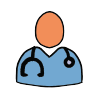Summary
Magnesium is an essential mineral that plays a critical role in numerous bodily functions, including muscle and nerve function, blood sugar control, and bone health. Despite its importance, magnesium often remains underappreciated. Many people do not get enough magnesium from their diet, which can lead to deficiencies with symptoms like muscle cramps, fatigue, and irregular heartbeats. Good dietary sources of magnesium include leafy greens, nuts, seeds, and whole grains.
Most of us in our life encounter muscle spasm, back pain and various grades of musculoskeletal pain. We often suffer from number of pain related diseases especially during the old age due to derangement of number of minerals within the body.
There are number of minerals in our body and they have diverse role inside the body. Some people prefer taking carbohydrates, proteins and fats enough to make their diet complete but they fail to maintain sufficient vitamins and minerals to metabolize those food products. It is the food adulteration, less knowledge of way of cooking food and sedentary life style that is shifting the diseases pattern to a unusual paradigm.
Being in a medical profession we often find many youth as well as adults who are taking calcium on regular basis to cure their back pain, muscle spasm, bone pain etc. Still they are fighting against their painful condition. It was during my medical schools when I suffered from severe muscle spasm that gave me the reason to look upon recent advances on any other minerals which shares the job of calcium. During medical school we go through many texts and many times describing the importance of calcium in the human body and maybe we remember it by heart as these are the questions often asked during the exams. Even with lot more emphasis on calcium, we should never forget the role of magnesium in human body. Recent research to explore the role of magnesium in human body gives us clear view of the larger boundary magnesium has created for a healthy life.
Magnesium, atomic number 12, is often designated as Mg. The Linus Pauling Institute supports the latest RDA for magnesium intake (400-420 mg/day for men and 310-320 mg/day for women). During my medical schools, I have encountered the several occasions where magnesium was used to treat several medical conditions. Epsom salt (Magnesium Sulfate) is used as anti inflammatory. Epsom can also be used in faster healing of the wound and it prevents infections. Eclampsia in among the clinical conditions which reveals the medicinal property of magnesium. Within the human body, magnesium plays major role in maintaining cardiovascular system, nervous system, immune system, musculoskeletal system, body metabolism, energy generation and as neurotransmitter precursor. It has role for effective blood circulation and maintains skin integrity. With immense role of magnesium we can still read text books and researches saying 80 % of the Americans are suffering from magnesium deficiency. It is also important to maintain the ration of calcium and magnesium which was initially described by French researcher to be 2: 1 but this ration was varied in later research conducted by award winner medical/ naturopathic doctor, Dr Carolyn Dean. She was working on role of magnesium for more than 15 years and the role of magnesium is yet to get revealed. Magnesium in often used by homeopathic physicians to treat number of health ailments and is commonly used by number of acupuncture specialist. The most absorbable form of magnesium in citrate. It has role in number of chemical reactions within the human body cells.
With the role of magnesium in number of medical conditions like fibromyalgia, heart diseases, migraine, osteoporosis, eclampsia, wound healing, heart failure, high blood pressure, insomnia, mental illness, PMS, hearing problems, stress, insulin resistance diabetes mellitus, vascular pathology and many more, it is high time to give the emphasis on importance of magnesium for maintaining good health. This miracle mineral should not be titled as “hidden mineral” in days to come.
Photo credit: http://www.periodictable.com
Dr. Bivek Singh
Author “A Journey into the human body”
Author “Pharmacology Simplified”
Instructor (BPH/PCL/B Sc Nursing)
Academic coordinator (MBBS)
Board of Directors, Medical Outreach Nepal, San Francisco, United States

